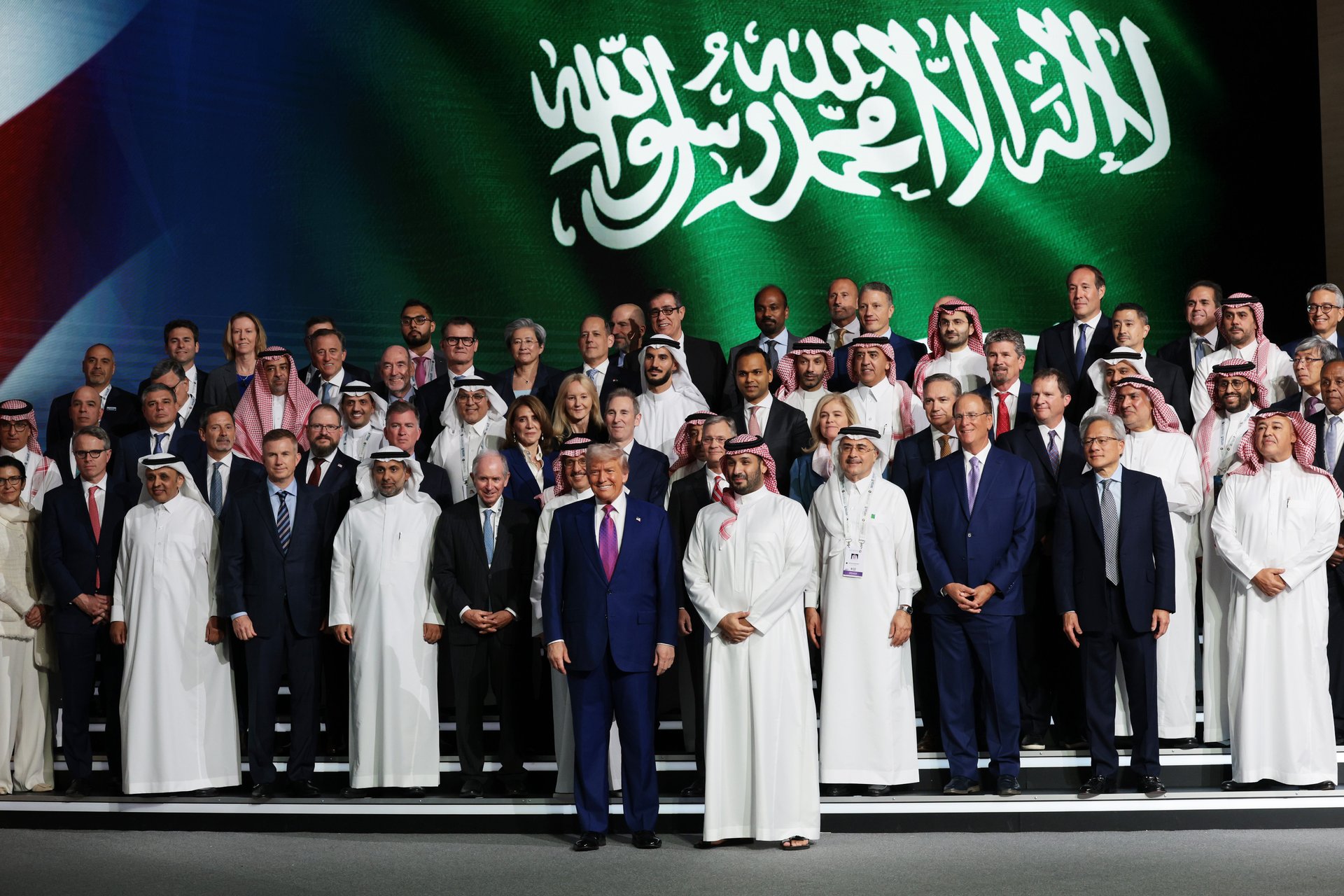A Saudi AI opportunity worth $1 trillion wins over Wall Street — and boosts Nvidia stock
Wedbush analysts celebrated the sweeping Blackwell chip deal as Nvidia packed on $300 billion in market cap. But critics question the long-term risks

The next front in the AI arms race isn’t Beijing. It’s in Riyadh, at least according to Wedbush.
Suggested Reading
A new memo from the firm, released early Wednesday, portrayed this week’s U.S.-Saudi forum as a major bullish shift in global tech power dynamics. President Donald Trump arrived in the Saudi capital on Tuesday to a lavish reception, escorted by six Royal Saudi F-15 fighter jets. On the ground, he was joined by a who’s who of U.S. tech, including Nvidia CEO Jensen Huang, Amazon (AMZN) CEO Andy Jassy, OpenAI CEO Sam Altman, and Alphabet’s (GOOGL) Ruth Porat.
Related Content
Wedbush estimates the Saudi Arabian AI opportunity could add $1 trillion to the globe’s total AI addressable market.
Deal sends Nvidia stock soaring
A sweeping new partnership between Nvidia and Saudi Arabia’s sovereign AI initiative, Humain, was the focus of the gathering. Under the deal, Nvidia will sell 18,000 next-gen Blackwell chips to power the Kingdom’s first supercomputer. Over the next five years, Saudi Arabia plans to build out a network of AI data centers to train and deploy sovereign models as part of its Vision 2030 push to diversify away from oil.
In tandem, Nvidia stock soared almost 6% on Tuesday and climbed another 3% before Wednesday’s opening bell, in a two-day rally sparked in large part by the news. A move like that for a company Nvidia’s size is worth roughly $300 billion in market value – equal to Palantir’s (PLTR) entire market cap, for context.
The regulatory backdrop is significant, too
Days before the trip, the U.S. Commerce Department rescinded the Biden-era AI Diffusion Rule, a sweeping framework that would have imposed tiered export controls across dozens of countries.
As Bloomberg reported, the Trump administration plans to replace it with a more flexible, transactional approach, easing restrictions for close allies like Saudi Arabia and the UAE, and tightening them for countries less in favor, including China and Malaysia.
‘The geopolitical question of our time’
Whether the news is unambiguously bullish is another matter.
The reversal of U.S. policy introduces new layers of uncertainty. There’s the ethical and strategic risk of handing sovereign AI capabilities to authoritarian states. And while transactional diplomacy may unlock short-term access in some markets, it replaces a rules-based system with case-by-case dealmaking. Critics warn that this shift could fragment AI-related laws, regulations, and oversight.
In short, one AI Cold War may be easing. Another looks to be unfolding. “Who controls A.I. is the geopolitical question of our time,” Jim Secreto, a former deputy chief of staff at the Commerce Department, told the New York Times.
For the Trump administration, that question is becoming less about containment and more about cutting deals.